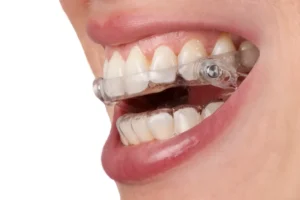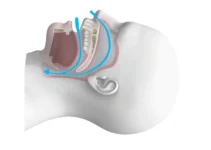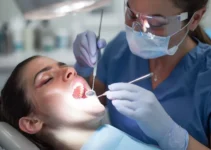Exploring the effectiveness of a chin strap for snoring can be pivotal for many struggling with sleep disruptions. This device, designed to keep the jaw in place during sleep, aims to enhance airway stability and reduce snoring. While many individuals report improvements in sleep quality and a reduction in snoring, it’s crucial to consider personal comfort and potential side-effects. Factors such as the design of the chin strap, the material used, and personal sleep habits play significant roles in determining the overall success of this snoring solution. Understanding these elements can help users make more informed decisions about incorporating a chin strap into their nightly routine.
Understanding Chin Straps for Snoring
Snoring is a common problem that affects many individuals and their partners, often leading to disrupted sleep and potential health issues. One solution that has garnered attention in recent years is the chin strap for snoring. This non-invasive device is designed to help reduce or eliminate snoring by addressing certain anatomical and physiological factors. In this article, we will explore what a chin strap for snoring is, how it works, and who can benefit from using it.
By understanding these aspects, you can make an informed decision about whether a chin strap might be an effective solution for your snoring issues. Let’s delve into the details to provide a comprehensive overview of this potential remedy.
What is a Chin Strap for Snoring?
A chin strap for snoring is a simple device made of soft, adjustable fabric designed to be worn around the head and under the chin during sleep. Its primary function is to keep the mouth closed by providing gentle support to the jaw. This helps promote nasal breathing over mouth breathing, which is often associated with snoring.
Chin straps are usually made from elastic materials that can comfortably conform to the shape of the head and face. They are easy to use and can be adjusted to fit different head sizes. Most chin straps are also designed to be breathable and hypoallergenic to ensure comfort throughout the night.
Moreover, these devices are typically economical and do not require a prescription, making them an accessible solution for many people struggling with snoring.
How Does a Chin Strap Work?
The mechanism of a chin strap for snoring is straightforward yet effective. The strap works by positioning the jaw in a way that keeps the mouth closed while sleeping. This encourages the sleeper to breathe through the nose instead of the mouth. Mouth breathing is a common cause of snoring because it often leads to the vibration of soft tissues in the throat.
When the mouth is kept closed, the likelihood of the tongue and soft tissues collapsing and obstructing the airway is reduced. This leads to a clearer airway and, consequently, less snoring. The chin strap also helps maintain proper alignment of the jaw and airway, contributing to uninterrupted airflow. Studies have shown that the use of chin straps can be particularly beneficial for individuals with mild to moderate obstructive sleep apnea (OSA) and those who experience snoring predominantly due to mouth breathing. Chin straps may also be used in conjunction with other treatments, such as Continuous Positive Airway Pressure (CPAP) therapy, to enhance effectiveness.
Who Can Benefit from Using a Chin Strap?
Chin straps for snoring are not suitable for everyone, but they can be particularly beneficial for certain groups of people. Understanding who can benefit from using a chin strap can help you determine if this option is worth exploring.
- Individuals with mild to moderate snoring primarily caused by mouth breathing.
- People with mild to moderate obstructive sleep apnea (OSA) who need to keep their airways open without using invasive devices.
- Users of CPAP machines who struggle with mouth leaks, as the chin strap can help keep the mouth closed, enhancing CPAP effectiveness.
- Individuals who find other snoring solutions, such as mouthpieces or nasal strips, uncomfortable or ineffective.
It’s important to note that while chin straps can be effective for many, they are not a one-size-fits-all solution. People with severe snoring issues or more complex conditions may need to seek other forms of treatment, such as consulting with a sleep specialist.
In conclusion, chin straps for snoring offer a non-invasive, cost-effective solution for many individuals suffering from snoring due to mouth breathing or mild sleep apnea. If you fit the criteria mentioned above, it might be worthwhile to give a chin strap a try. For more insights on related topics, be sure to check out our other articles.
Evaluating the Efficacy of Chin Straps
Chin straps are a popular solution for many individuals who suffer from snoring and mild sleep apnea. These devices are designed to keep the mouth closed during sleep, thereby promoting nasal breathing and reducing airway obstruction. While chin straps are widely available and easy to use, their effectiveness can vary based on individual needs and conditions.
Understanding the efficacy of chin straps requires a detailed look at both clinical studies and user experiences. By analyzing this data, we can better determine if chin straps are a viable option for managing snoring and sleep apnea.
In this article, we will delve into the scientific studies that have evaluated chin straps, share real user testimonials, and compare chin straps to other commonly used anti-snoring devices. This comprehensive approach will provide a well-rounded perspective on whether chin straps are truly effective.
Clinical Studies on Chin Strap Effectiveness
Several clinical studies have been conducted to evaluate the effectiveness of chin straps in reducing snoring and mild sleep apnea. For instance, a study published in the Journal of Clinical Sleep Medicine found that chin straps significantly reduced snoring intensity in a group of participants who used them consistently over several weeks.
Another research study conducted by the American Academy of Sleep Medicine focused on comparing chin straps to Continuous Positive Airway Pressure (CPAP) machines. The results indicated that while chin straps are less effective than CPAP machines for severe sleep apnea cases, they do offer considerable benefits for individuals with mild to moderate snoring issues.
Key findings from these studies include:
- Reduction in snoring frequency and intensity
- Improved sleep quality for both users and their partners
- Higher compliance rates compared to more invasive treatments
These results highlight the potential benefits of chin straps, particularly for those with less severe symptoms.
User Testimonials and Experiences
In addition to clinical studies, user testimonials provide valuable insights into the real-world efficacy of chin straps. Many users report a significant reduction in snoring and an overall improvement in sleep quality after incorporating chin straps into their nightly routine.
For example, one user noted, “I’ve tried several anti-snoring devices, but the chin strap has been the most effective. My snoring has decreased dramatically, and I wake up feeling more rested.” Such positive experiences are common, though it’s important to note that individual results can vary.
On the flip side, some users have reported discomfort or difficulty in adjusting to wearing a chin strap throughout the night. “It took me a few weeks to get used to the feeling of the strap, but now I can’t sleep without it,” shared another user. This highlights the importance of persistence and finding the right fit for optimal results.
Comparing Chin Straps to Other Anti-Snoring Devices
When compared to other anti-snoring devices, chin straps offer distinct advantages and some limitations. One of the main benefits of chin straps is their non-invasive nature. Unlike CPAP machines or oral appliances, chin straps do not require professional fitting or adjustment, making them easier to use and more accessible.
However, chin straps may not be as effective for individuals with severe sleep apnea or those who primarily breathe through their mouth. In such cases, alternative devices like CPAP machines or mandibular advancement devices (MADs) may be more appropriate.
- CPAP Machines: Highly effective for severe sleep apnea, but can be uncomfortable and require regular maintenance.
- Oral Appliances: Custom-fitted devices that can prevent airway obstruction but may cause jaw discomfort.
- Nasal Strips: Simple and cost-effective, but generally less effective than chin straps for mouth breathers.
Ultimately, the choice between a chin strap and other anti-snoring devices depends on individual needs, preferences, and the severity of the condition.
In conclusion, while chin straps may not be the ultimate solution for everyone, they offer a promising alternative for many individuals struggling with snoring and mild sleep apnea. For more insights into sleep health, explore our other articles on the latest advancements in sleep apnea treatment and snoring solutions.
Comfort Levels of Chin Straps
Chin straps are often used to address various medical conditions, such as sleep apnea and snoring. However, the comfort levels of these straps can vary significantly based on several factors. By understanding these factors, users can select a chin strap that is both effective and comfortable.
Several elements contribute to the overall comfort of a chin strap, including the material of the strap, its design, and how well it can be adjusted. By examining each of these components in detail, we can gain a better understanding of what makes a chin strap comfortable.
Material and Design Considerations
The material of a chin strap plays a crucial role in its comfort. Most chin straps are made from materials such as neoprene, polyester, or a blend of fabrics. Neoprene is popular for its durability and flexibility, but it can sometimes cause skin irritation. Polyester straps, on the other hand, are usually softer and less likely to irritate the skin.
The design of the strap also impacts comfort levels. Wide straps tend to distribute pressure more evenly across the head and chin, reducing the likelihood of discomfort. Ventilated designs help with airflow, preventing excessive sweating and heat buildup. Moreover, padded straps can offer additional comfort, especially for long-term use.
When choosing a chin strap, it’s important to consider not only the material but also the overall design elements that can enhance comfort. Look for features like padding, ventilation, and width to ensure a more pleasant experience.
Adjustability and Fit
An adjustable chin strap allows for a customized fit, which is essential for user comfort. Most chin straps come with Velcro closures or buckle systems that enable users to adjust the tension and fit according to their needs. This is particularly important because a strap that is too tight can cause discomfort, while one that is too loose may not be effective.
Additionally, the shape and size of a chin strap can affect how well it fits different head shapes and sizes. Some straps are designed to be one-size-fits-all, but others come in various sizes to better accommodate individual needs. Ensuring a proper fit is crucial for both comfort and efficacy.
It’s also advisable to try on different straps and note how they feel. A well-fitted chin strap should be snug but not constricting and should stay in place throughout the night without causing undue pressure.
User Comfort and Sleep Quality
Comfort levels directly affect sleep quality. A chin strap that is comfortable can significantly improve the quality of sleep by keeping the airway open and reducing interruptions. Conversely, an uncomfortable strap can lead to disturbed sleep and may even cause users to abandon the treatment altogether.
Studies have shown that consistent use of a comfortable chin strap can lead to better sleep outcomes for individuals suffering from obstructive sleep apnea or chronic snoring. Improved sleep not only benefits the user but can also have positive effects on their overall health and well-being.
To maximize user comfort, it is important to choose a chin strap that works well with other sleep aids, such as CPAP machines. Compatibility with other devices can further enhance the user’s sleep experience.
If you are struggling to find a comfortable chin strap, consult with a healthcare provider for recommendations. They can help you choose a product that meets both your comfort and treatment needs.
Understanding the various factors that contribute to the comfort levels of chin straps can help users make informed choices. For more insights on sleep aids and other related topics, feel free to explore our other articles.
Tips for Using a Chin Strap Effectively
Using a chin strap can be a highly effective solution for managing snoring and mild sleep apnea. However, to reap the maximum benefits, it is crucial to use the device correctly. In this guide, we will cover some essential tips to help you use your chin strap effectively.
Whether you are a new user or someone looking to improve the effectiveness of your chin strap, these tips will guide you through the proper use, maintenance, and points at which to seek professional advice.
Proper Positioning and Adjustment
Correct positioning of the chin strap is vital for its effectiveness. Ensure the strap sits comfortably on your chin without causing pain or excessive pressure. The strap should support your jaw, helping to keep your mouth closed during sleep. Overly tight straps can lead to discomfort, while loose straps may not deliver the desired results.
Adjusting your chin strap properly involves:
- Placing the strap under your chin and bringing the ends over your head.
- Adjusting the Velcro or buckle system until you achieve a snug fit.
- Ensuring the strap is not too tight to avoid any discomfort or potential skin irritation.
Regular adjustment checks can help maintain the correct fit, especially after washing or prolonged use.
Maintaining Your Chin Strap
Regular maintenance is essential for the longevity and hygiene of your chin strap. A poorly maintained strap can become a breeding ground for bacteria, which may lead to skin irritation or other issues. Most chin straps are made of materials that require specific cleaning methods, so always follow the manufacturer’s guidelines. General maintenance tips include:
- Washing the strap regularly with mild soap and water.
- Avoiding the use of harsh chemicals that can degrade the material.
- Drying the strap thoroughly before use to prevent mold and bacteria growth.
- Inspecting for any signs of wear and tear, replacing the strap if necessary.
By taking these steps, you can ensure your chin strap remains effective and lasts longer.
When to Consult a Healthcare Professional
While chin straps are effective for many people, they are not a one-size-fits-all solution. If you experience any discomfort, skin irritation, or if the strap does not seem to improve your symptoms, it may be time to consult a healthcare professional. Persistent snoring, severe sleep apnea, or other underlying health conditions might require more comprehensive treatment options.
Signs that you should seek professional advice include:
- Continuous discomfort despite proper adjustment and maintenance.
- Worsening of snoring or sleep apnea symptoms.
- Development of sores or skin irritation.
- Difficulty adhering to the strap usage due to discomfort or inadequate fit.
A healthcare professional can provide tailored advice or alternative treatments to address your specific needs.
For more detailed information on related topics such as advanced sleep apnea treatments, oral appliances, and other snoring remedies, be sure to explore our other articles.
Common Questions About Using a Chin Strap for Snoring
If you’re considering using a chin strap to help with snoring, you likely have some questions about its effectiveness and comfort. Here’s a common inquiry answered to help guide your decision.
How does a chin strap help reduce snoring?
A chin strap for snoring works by keeping the jaw in a slightly forward and closed position. This helps to keep the airway more open during sleep, reducing the vibrations that cause snoring sounds. It is particularly helpful for those who snore because their mouth falls open during the night.

My name is Salman Kapa, a 73-year-old expert in bone regeneration and dental implantology. With decades of experience in the field, I am dedicated to advancing our understanding of oral health and hygiene. Through my research and writing, I aim to contribute to the development of innovative solutions in dental care.




